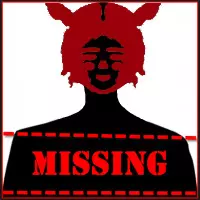To noncutters, self-mutilation appears to be either self-destructive, masochistic, or simply irrational. But cutting has great meaning for those who do it. That meaning, however, is often kept hidden and unspoken because of the secrets it reveals and the shame it attracts. It is like a secret code known only to those who speak its language---the language of pain---or those who take the time to listen carefully.
15-year-old Lindsay remembers the exact date she started cutting. It came at the end of a week unlike she had ever known. She had been depressed before, on and off since age twelve. Because appearances meant everything in her family, she had always tried hard to "act happy." This time, however, something was very different. She couldn't pretend her feelings away or cover them with a phony smile. She was withdrawn, irritable, and tired. Suddenly she couldn't stand to be in the light anymore, so she holed up after school in her room, doing nothing for hours on end.
"I stood in the bathroom, looking in the mirror, and I didn't recognize myself," she says, recalling that fateful day. "It was like my face looking back at me in the mirror, but my soul wasn't there. It was just a body to me, and I didn't feel part of it anymore. I felt I had lost control of my thoughts, my emotions, and my actions. And when you have lost control of everything, what do you have left? I saw the box of razors my parents kept in the medicine cabinet. It just seemed to make sense at the time, through I didn't know exactly why. I was only scared and searching. Later on, the more I cut, the more I understood why."
Most people experience brief episodes of dissociation during their lives, says Scott Lines, chief psychologist for the Psychological Trauma Center in San Francisco, "but we are reasonably sure that we can hold ourselves together physically and psychologically." What makes cutters different, he argues, is that they are people "who feel like they are falling apart, shattering into bits and pieces." When cutters sense that they are shattering, when a series of events or "triggers" occur that threaten their very being, they turn to the most effective thing they have discovered to avoid a complete psychotic break and pull the pieces back together. Lines believes cutting is as much about binding as it is about rending. "We all feel good when a wound heals, but cutters need that feeling," says Lines. "It gives them the illusion that they are healing, that their skin and psyche can hold themselves."

